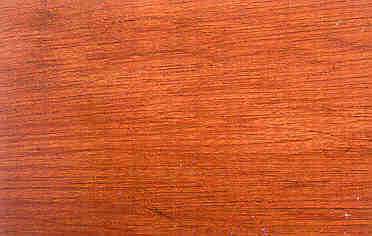 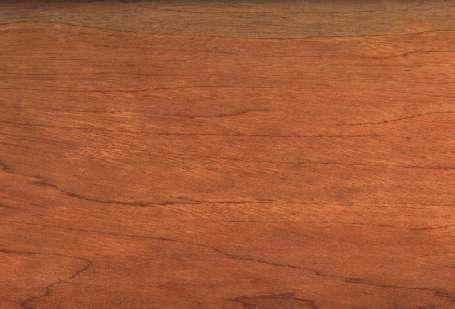 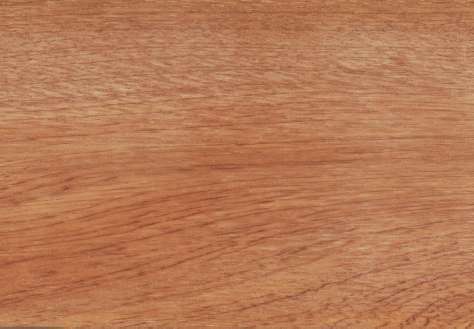 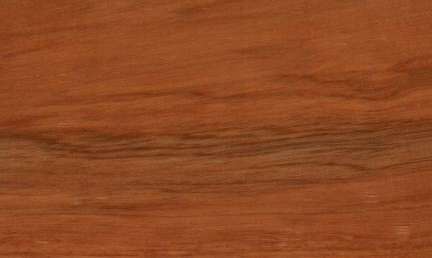 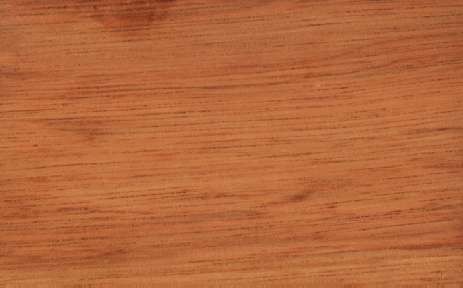
Santa maria (Calophyllum brasiliense)
Family: Guttiferae
Common names: Aceite, Aceite cachicamo, Aceite maria, Alfaro, Alfaro bella maria, Balsamaria, Bari, Baria, Barillo, Bella maria, Bintangor, Birma, Birmah, Brazil beauty leaf, Cachicamo, Calaba, Calabra, Calambuca, Came-marie, Cashicamo, Cedro cimarron, Cedro de patano, Ceite mario, Chijole, Chijole mahogany, Cojon, Crabwood, Dalemarie, Damage, Degame, Edaballi, False-mamey, Galba, Galba odorant, Guanandi, Guanandy, Guaya, Inglez, Jacare-uba, Jacareuba, Koelarie, Koerahara, Koerali, Koerli, Krassa, Kurahara, Lagarto-caspi, Landi, Landim, Laurac, Leche amarilla, Leche de mari, Leche de maria, Leche maria, Lorahara, Mani kwaha, Mara, Maria, Mario, Ocuje, Ocuje colarado, Palo de maria, Palo maria, Sakbaramte, Santa maria, Tzeltal, Vario, Wild calabash, Wild calebash, Wild-mamee, Yandiira
Distributed in: Belize, Bolivia, Brazil, Colombia, Columbia, Cuba, Dominican Republic, Ecuador, French Guiana, Guatemala, Guyana, Haiti, Jamaica, Mexico, Panama, Peru, Puerto Rico [US], Puerto Rico, United States, Venezuela (Central America, Latin America, North America, Oceania and S.E. Asia)
Distribution overview: Grows throughout the West Indies and from Mexico southward through Central America and into northern South America. It is found on all types of soils-from wet, humid to very dry sites.
Common uses: Agricultural implements, Beams, Bedroom suites, Boat building (general), Boat building, Boat building: framing, Bridge construction, Building construction, Cabin construction, Cabinetmaking, Canoes, Chemical derivatives, Concrete formwork, Construction, Cooperages, Decks, Decorative plywood, Decorative veneer, Domestic flooring, Door, Drawer sides, Excelsior, Exterior trim & siding, Exterior uses, Factory construction, Figured veneer, Flooring, Form work, Foundation posts, Framing, Furniture , Furniture, Handles: general, Handles: woodworking tools, Heavy construction, Joinery, Joists, Kitchen cabinets, Lifeboats, Light construction, Living-room suites, Marine construction, Mine timbers, Office furniture, Parquet flooring, Particleboard, Plywood, Plywood: veneer (marine), Poles, Porch columns, Radio - stereo - TV cabinets, Railroad ties, Rough construction, Shakes, Sheathing, Shingles, Shipbuilding, Structural work, Tool handles, Turnery, Vats, Vehicle parts, Veneer, Veneer: decorative, Wheel spokes, Wheels
Product sources: Timber from Central America is called by the trade name Santa Maria. The commercial name Jacareuba is reserved for Calophyllum timber from Brazil.The ITTO reports that an important source of timber. Exportation is low but regular. The wood is imported from Brazil into the United States, Belgium, Venezuela, and France.
Environment profile: Status unknown due to inadequate information
Colors: the heart isReddish brown, Yellow to golden-yellow to orangeand the sapwoodPink, Pinkish.The grain isWeak figure, the textureMedium coarse to coarseand the lusterSlightly lustrous
Natural durability: Susceptible to marine borer attack, Very durable
Odor: No specific smell or taste
Kiln Schedules: T2 - D4 (4/4); T2 - D3 (8/4) US
Kiln Drying Rate: Very slow (>28 days for boards < 32 mm, to >84 days for boards >= 63 mm)
Drying Defects: Slight surface checking, Slight twist/warp
Ease of Drying: Variable results.
Tree Identification: Bole/stem form is straight
Comments: Care required during nailing and screwing General finishing qualities are rated as good May split during nailingMay split
Blunting Effect: Blunting effect on sawing dry wood is moderate
Boring: Moderately easy
Carving: Easy to carve
Cutting Resistance: Moderate to saw
Gluing: Very good properties
Mortising: Interlocked grain effects mortising
Moulding: Good finishing
Movement in Service: Good finishing
Nailing: Tends to split during nailing, Very Good to Excellent
Planing: Poor planing characteristics
Resistance to Impregnation: Sapwood is permeable
Resistance to Splitting: Poor
Response to hand tools: Variable qualities
Routing recessing: Routing yields good results
Sanding: Good sanding finish
Veneering qualities: Suitable for slicing, There is slight to moderate drying degrade and the potential for buckles and splits
Steam bending: Moderate
Screwing: Possible if prebored, Very Good to Excellent Results; Turning: Turns with moderate ease
Painting: Satisfactory; Polishing: Satisfactory; Staining: Satisfactory staining characteristics; Varnishing: Good;
- Numerical data Metric
- Numerical data English
- Strength properties
- References
 |
 |
 |
 |
| Item |
Green |
Dry |
Metric |
| Specific Gravity |
0,47 |
|
|
| Density |
|
641 |
kg/m3 |
| Bending Strength |
684 |
1008 |
kg/cm2 |
| Crushing Strength |
53 |
95 |
kg/cm2 |
| Hardness |
|
508 |
kg |
| Impact Strength |
76 |
88 |
cm |
| Shearing Strength |
|
142 |
kg/cm2 |
| Stiffness |
108 |
126 |
1000 kg/cm2 |
| Tangential Shrinkage |
8 |
|
% |
| Radial Shrinkage |
5 |
|
% |
| Weight |
641 |
624 |
kg/m3 |
| Maximum Load |
0,7 |
0,98 |
cm-kg/cm3 |
| Toughness |
|
202 |
cm-kg |
| Static Bending |
368 |
542 |
kg/cm2 |
|
 |  |  |  | | Item | Green | Dry | English | | Bending Strength | 9742 | 14345 | psi | | Crushing Strength | 766 | 1352 | psi | | Density | | 40 | lbs/ft3 | | Hardness | | 1120 | lbs | | Impact Strength | 30 | 35 | inches | | Maximum Crushing Strength | 5267 | 8285 | psi | | Shearing Strength | | 2023 | psi | | Static Bending | 5238 | 7722 | psi | | Stiffness | 1545 | 1797 | 1000 psi | | Toughness | | 176 | inch-lbs | | Work to Maximum Load | 10 | 14 | inch-lbs/in3 | | Specific Gravity | 0.47 | | | | Weight | 40 | 39 | lbs/ft3 | | Radial Shrinkage | 5 | | % | | Tangential Shrinkage | 8 | | % | | Volumetric Shrinkage | 12 | | % | |
Bending strength (MOR) = medium 0
Hardness (side grain) = soft 0
Max. crushing strength = high 0
Shearing strength (parallel to grain) = medium 0
Shrinkage, Tangential = fairly large 0
Modulus of Elasticity (stiffness) = low 0
Modulus of Elasticity (stiffness) = medium 0
Max. crushing strength = medium 0
Density (dry weight) = 38-45 lbs/cu. ft. 0
Shrinkage, Radial = moderate 1
Shrinkage, Tangential = moderate
Shrinkage, Radial = fairly large
Shrinkage, Volumetric = fairly large
Shrinkage, Radial = large
Shrinkage, Volumetric = moderate
Shrinkage, Tangential = large
Density (dry weight) = 31-37 lbs/cu. ft.
Bending strength (MOR) = low
Work to Maximum Load = low
Shrinkage, Volumetric = large
Toughness-Hammer drop (Impact Strength) = medium
Toughness-Hammer drop (Impact Strength) = low
Shearing strength (parallel to grain) = very low
Shearing strength (parallel to grain) = low
Max. crushing strength = low
Density (dry weight) = 53-60 lbs/cu. ft.
Density (dry weight) = 46-52 lbs/cu. ft.
Compression strength (parallel to grain) = high
Bending strength in the air-dry condition (about 12 percent moisture content) is high - comparable to Teak. Maximum crushing strength, or compression strength parallel to grain, is high. Some familiar species with high crushing strength parallel to grain include Hard maple, Teak, and White oak. Hardness is rated as medium. It resists denting and marring about as well as white oak or birch. The weight is high. The density is high
Belize,1946,42 Secondary Hardwood Timbers of British Honduras,British Honduras Forest Department Bulletin,No.1Berni, C.A., Bolza, E., Christensen, F.J.,1979,South American Timbers - The Characteristics, Properties and Uses of 190,Species,C.S.I.R.O Div. Building ResearchBolza, E.,1976,Timber and Health,Div. Building Res. C.S.I.R.O. AustraliaBoone, R.S., C.J. Kozlik, P.J. Bois, E.M. Wengert. 1988. Dry Kiln Schedules for Commercial Hardwoods -Temperate and Tropical. USDA, Forest Service, General Technical Report FPL-GTR-57, Forest Products Laboratory, Madison, Wisconsin.Brazier, J.D., Franklin, G.L.,1967,An Appraisal of the Wood Characteristics and Potential Uses of some,Nicaraguan Timbers,FAO for Forest Products Research Laboratory, Princes RisboroughBrown, W.H.,1969,Properties and uses of Tropical hardwoods in the United Kingdom. Part 1,Nonstructural properties and uses.,Conference on Tropical hardwoods SC-5/TN-5, Syracuse UniversityBrown, W.H.,1978,Timbers of the World, No. 2 South America,TRADA, Red Booklet SeriesCAOBA International, San Francisco, California. 1993. Personal Communication.Chichignoud, M., G. Deon, P. Detienne, B. Parant, and P. Vantomme.1990.Tropical Timber Atlas of Latin America.International Tropical Timber Organization (ITTO, Centre Technique Forestier Tropical, Division of CIRAD, 45 bis Avenue de la Belle Gabrielle, Nogent-sur-Marne, CEDEX, France.Chudnoff, M.,1984,Tropical Timbers of the World,U.S.A. Department of Agriculture, Forest Service, Forest Products,Laboratory, Madison.Clifford, N.,1953,Commercial Hardwoods - Their Characteristics Identification and,Utilization,Sir Isaac Pitman & Sons Ltd. LondonConstantine, Jr., A. J. 1959.Know Your Woods - A Complete Guide to Trees, Woods, and Veneers.Revised Edition.Revised by H.J. Hobbs.Charles Scribner's Sons, New York.Davis, E.M.,1949,Exploratory tests in machining and related properties of 15 Tropical,American Hardwoods,U.S.A. Department of Agriculture, Forest Products Laboratory, Madison,Report,No.1744Erfurth, T., Rusche, H.,1976,The Marketing of Tropical Wood B. Wood Species from S. American Tropical,Moist Forests,F.A.O. Forestry DepartmentFarmer, R.H.,1972,Handbook of Hardwoods,HMSOFlores Rodriguez, L.J.,1969,Description Caracteristicas y usos de 25 Maderas tropicales,Mexicanas,Camera Nacional de la Industria de la Construccion Serie Maderas de MexicoForest Products Research Laboratory, U.K.,1936,Major tests on Empire Timbers: Properties of Santa Maria, Calophyllum,brasiliense var. Rekoi strandl - from British Honduras,Forest Products Research Laboratory, Princes Risborough, Department of,Science and Industrial Research Project 24 Investigation 6 (unpublished)Forest Products Research Laboratory, U.K.,1943,Foreign Timbers 1. Jacareuba (Calophyllum brasiliense) and Cedro (Cedrela,sp.,Forest Products Research Laboratory, Princes Risborough, Department of,Science and Industrial Research Leaflet,27Forest Products Research Laboratory, U.K.,1967,The Steam Bending Properties of various timbers,Forest Products Research Laboratory, Princes Risborough, Leaflet,No.45Forests Products Research Laboratory, U.K.,1956,A Handbook of Hardwoods,Forest Products Research Laboratory, Princes Risborough, Department of,Science and Industrial Research, Building Research EstablishmentGomez-Vazquez, B.G.,1981,Wood structure and potential end uses of some lesser known Mexican timber,species,Thesis for Msc. Univ. Wales BangorHMSO.1981.Handbook of Hardwoods, 2nd Edition.Revised by R. H. Farmer. Department of the Environment, Building Research Establishment, Princes Risborough Laboratory, Princes Risborough, Aylesbury, Buckinghamshire.ITTO. New Marketable Species Technical Notes. Prepared by Centre Technique Forestier Tropical (CTFT, Division of CIRAD, 45 bis, Avenue de la Belle Gabrielle, 94736 Nogent-sur-marne Cedex, FranceKukachka, B.F.,1970,Properties of Imported Tropical Woods,Forest Research Paper FPL 125Lavers, G. M.1966.The Strength Properties of Timbers.Forest Products Research Bulletin, No. 50. Ministry of Technology, Her Majesty's Stationery Office, London.Lavers, G.M.,1983,The Strength Properties of Timber (3rd ed. revised Moore G.L.,Forest Products Research Laboratory, Princes Risborough, Building Research,Establishment Report (formerly Bulletin No.50)Little, E.L., Wadsworth, F.H.,1964,Common Trees of Puerto Rico and the Virgin Islands,U.S.A. Department of Agriculture, Agriculture Handbook,No.249Longwood, F.R.,1961,Puerto Rican Woods - Their Machining Seasoning and Related Characteristics,U.S.A. Department of Agriculture, Agriculture Handbook,No.205Longwood, F.R.,1962,Commercial Timbers of the Caribbean,U.S.A. Department of Agriculture, Agriculture Handbook,No.207Loureiro, A.A., Freitas da Silva, M.,1968,Catalogo das Madeiras da Amazonia (2 vols,Min. do Ultramar Belem BrasilMainieri, C.,1971,25 Madeiras da Amazonia de Valor Comercial, Caracterizacas macroscopia,,usos comuns e indices qualificativos,Inst. Pesq. Tec. Sao Paulo, Brazil Publ., No.798Mainieri, C.,1978,Fichas de Caracteristicas das Madeiras Brasileiras,Inst. Pesquisas TechnologicasMarshall, R.C.,1934,Trees of Trinidad and Tobago,Government Printer Port of Spain TrinidadPardy, A.A.,1951,Notes on Indigenous Trees and Shrubs of S. Rhodesia - Uapaca kirkiana,Ministry of Agriculture and Lands S. Rhodesia Bulletin,No.1582Patterson, D.,1988,Commercial Timbers of the World, 5th Edition,Gower Technical PressPerpetua Hardwoods.Sea Star Trading Co. - Purveyors of Fine Wood.Newport, Oregon.Personal Communication, 1993.Redding, L.W.,1971,Resistance of Timbers to Impregnation with Creosote,Forest Products Research Laboratory, Princes Risborough, Building Research,Establishment Bulletin No.54 pp.43Saks, E.V.,1954,Tropical Hardwoods for veneer Production in Mexico,Caribbean Forester,15(3&4, pp112-9Smith, D.N.,1959,The Natural Durability of Timber,Forest Products Research Laboratory, Princes Risborough, Building Research,Establishment Record,No.30Smith, E.E.,1954,The Forests of Cuba,Maria Moors Cabot Foundation,U.S.A. Publication, No. 2Swabey, C.,1941,The Principal Timbers of Jamaica,Department of Science and Agriculture Jamaica Bulletin No.29Teixeira, D. E., M. A. E. Santana and M. Rabelo de Souza.1988.Amazonian Timbers for the International Market.ITTO Technical Series 1.Brazilian Institute for Forestry Development (IBDF, Brazil.Timber Development Association Ltd.,1955,World Timbers (3 Vols.,Timber Development Association Ltd.Titmuss, F.H.,1965,Commercial Timbers of the World,Technical Press Ltd., London, 3rd editionTropical Timber Information Center U.S.A.,1967,Calophyllum brasiliense, Calophyllum lucidum,State Univ. of New York TTIC Brief,19U.S.D.A. Forest Service,1974,Wood Handbook,U.S.A. Department of Agriculture, Forest Service Handbook,72Villamil, F.G.,1971,Maderas Colombianas,Proexpo ColombiaVolkart, C.,1965,Recopilacion dedatos sobre propiedacies y usos maderos del Bosque Tropical,de las Costa Atlantica de Nicaragua,Turrialba,15(1, pp43-57Wangaard, F.F., W.L. Stern, and S.L. Goodrich. 1955. Tropical Woods - Properties and Uses of Tropical Woods, Volume V, No. 103. School of Forestry, Yale University, New Haven, Connecticut.WCMC.1992.Conservation Status Listing - Trees and Timbers of the World.World Conservation Monitoring Center-Plants Programme, Cambridge, CB3 ODL, United Kingdom.Williams, L.1936. Woods of Northeastern Peru.Field Museum of Natural History, Botanical Series, Volume XV, Publication 377, Chicago.Woods, R.P.,1949,Timbers of South America,TRADA, Red Booklet SeriesWood, B., Calnan, D.,1976,Toxic Woods,British Journal of Dermat 94 Suppl. 13
|












